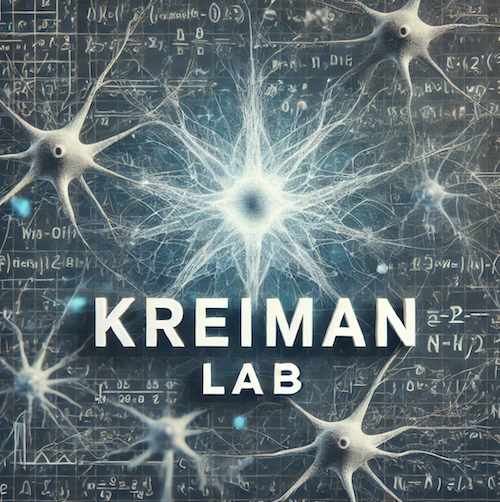Tag: computer vision
-
L-Wise: Boosting human visual learning
25 April 2025 Boosting human visual category learning through model-based image selection and enhancement Work presented at the International Conference on Learning Representations (ICLR) Morgan Talbot, Gabriel Kreiman, James DiCarlo, Guy Gaziv Read more
-
Using computational models to improve visual learning
jan 30, 2025 Morgan Talbot presenting at Vision Journal Club Morgan will be presenting the paper “L-WISE: Boosting Human Image Category Learning Through Model-Based Image Selection and Enhancement.” For a concise summary, please see the project website. The paper explores ways to enhance visual category learning in humans by applying adversarially trained ANNs as models of… Read more
-
Generalization in models of vision
Jan 8, 2025 Evaluating how brains generalize: data from macaque monkeys reveals flaws in deep neural networks Anne Manning, Harvard John A. Paulson School of Engineering and Applied Sciences, reports on the work of Spandan Madan, Will Xiao and colleagues presented recently in NeurIPS. This work sheds light on the key Achilles heel of current… Read more
-
Generalization is the Achilles heel of AI
dec 18, 2024 Kempner All Hands Meeting Prof. Kreiman gave an All Hands meeting at the Kempner Institute for the Study of Artificial and Natural Intelligence at Harvard. The talk focused on the challenges of building AI algorithms that can generalize to novel data and situations. Read more about some of the research presented in… Read more
-
Kreiman lab presentations at NeurIPS 2024
dec 10-15, 2024 Neural Information Processing Systems 2024 Several members of the Kreiman lab presented their cutting-edge research at NeurIPS 2024. Read more
-
Successes and challenges in computational models of vision
26Nov2024 Professor Kreiman gives a lecture at NUS National University of Singapore 6:30pm We now have powerful computer vision algorithms that can segment scenes, label objects, and recognize actions. It is tempting to use these algorithms as models of visual processing in biological brains. I will provide an overview of some of the successes in using neural network models to partially describe visual… Read more
-
Congratulations to Spandan Madan on his NeuroAI 2024 work!
10/10/2024 Improving out-of-distribution generalization by mimicking the human visual diet Spandan’s paper was accepted at NeuroAI @ NeurIPS 2024 In this work Spandan shows that a careful account of the visual input statistics that humans encounter during learning can help improve machine learning algorithms. Read more
-
Kreiman lab posters at SFN 2024
october 5 — OCTOBER 9, 2024 Presentations by the Kreiman lab at the Society for Neuroscience Annual Meeting 2024 Oct 5 2024. 3:30-3:45 Prefrontal and Medial Temporal Neurons Encode Ordinal Information of Event Sequences in Humans. Presented by Jie Zheng. Oct 7 2024, 8:00-13:00 Syntactic-feature encoding of language in the human brain. Presented by Pranav… Read more
-
Prof. Kreiman gives a lecture at UC Berkeley
09/18/2024 Successes and challenges in computational models of vision We now have powerful computer vision algorithms that can segment scenes, label objects, and recognize actions. It is tempting to use these algorithms as models of visual processing in biological brains. I will provide an overview of some of the successes in using neural network models to partially describe visual behavior and predict neuronal responses in the visual system of monkeys and humans, focusing on the ventral stream associated with object recognition.… Read more
-
The next 200 milliseconds
08/08/2024 Prof. Kreiman gives a lecture on the dynamics of cognition at the Brains, Minds and Machines This lecture introduces a discussion of the complex recurrent and top-down signals that interact with sensory processes to interpret visual scenes, including contextual reasoning, eye movements and visual search, and pattern completion. Read more
